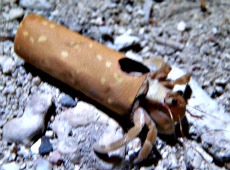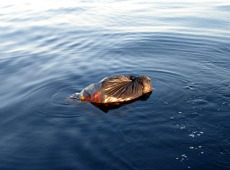The United States has confirmed it is in discussion with the Maldivian government over the signing of a Status of Forces Agreement (SOFA), an unauthenticated draft version of which outlines conditions for the potential establishment of a US military base in the country.
The draft agreement, obtained by Maldivian current affairs blog DhivehiSitee, “incorporates the principal provisions and necessary authorisations for the temporary presence and activities of United States forces in the Republic of Maldives and, in the specific situations indicated herein, the presence and activities of United States contractors in the Republic of Maldives.”
A spokesperson for the US Embassy in Colombo was unable to verify the authenticity of the leaked draft, “as the agreement has not been finalised.”
“There are no plans for a permanent US military presence in Maldives,” the spokesperson stated.
“SOFAs are normal practice wherever the Unites States cooperates closely with a country’s national security forces. SOFAs generally establish the framework under which US personnel operate in a country when supporting security-related activities and the United States is currently party to more than 100 agreements that may be considered a SOFA,” the spokesperson added.
Senior Maldivian government officials were meanwhile recently invited aboard a United States aircraft carrier (March 27) as it passed by the Maldives.
Tourism Minister Ahmed Adheeb, Defence Minister Mohamed Nazim, Home Minister Mohamed Jameel Ahmed, Police Commissioner Abdulla Riyaz and Vice President Mohamed Waheed Deen were flown to the USS John C Stennis aircraft carrier as part of an arrangement between the US embassy and Maldives Defence Ministry.
The visit was followed by the signing of a Memorandum of Understanding (MOU) between the Maldives and the US government to install a free border control system.
President’s Office Spokesperson Masood Imad said today that he had texted President Dr Mohamed Waheed who had no knowledge of any agreement. The Defence Ministry also had no information on the matter, he said.
Imad would not comment on whether the government would be open to such a proposal.
Spokesperson for the opposition Maldivian Democratic Party (MDP), MP Hamid Abdul Ghafoor, said the party had heard of the proposal – supposedly concerning Laamu Atoll and the site of the former British airbase on Seenu Gan in the south of the country.
“We are wondering what our other international partners – India, Australia, etc – think of this idea,” Ghafoor said.
The party’s parliamentary group leader, MP Ibrahim Mohamed Solih, said he had heard about the proposal “a few days ago”, and believed the matter would eventually be taken to parliament’s national security committee.
Draft proposal
Under the proposed 10 year agreement outlined in the draft, the Maldives would “furnish, without charge” to the United States unspecified “Agreed Facilities and Areas”, and “such other facilities and areas in the territory and territorial seas of the Republic of Maldives as may be provided by the Republic of Maldives in the future.”
“The Republic of the Maldives authorizes United States forces to exercise all rights and authorities with Agreed Facilities and Areas that are necessary for their use, operation, defense or control, including the right to undertake new construction works and make alterations and improvements,” the document states.
The US would be authorised to “control entry” to areas provided for its “exclusive use”, and would be permitted to operate its own telecommunications system and use the radio spectrum “free of cost to the United States”.
The US would also be granted access to and use of “aerial ports, sea ports and agreed facilities for transit, support and related activities; bunkering of ships, refueling of aircraft, maintenance of vessels, aircraft, vehicles and equipment, accommodation of personnel, communications, ship visits, training, exercises, humanitarian activities.”
US personnel would be be authorised to wear uniforms while performing official duties “and to carry arms while on duty if authorised to do so by their orders.”
US personnel (and civilian staff) would furthermore “be accorded the privileges, exemptions and immunities equivalent to those accorded to the administrative and technical staff of a diplomatic mission under the Vienna Convention”, and be subject to the criminal jurisdiction of the United States.
US personnel and contractors would moreover be permitted to import and export personal property, equipment, supplies and technology without license, restriction or inspection, or the payment of any taxes, charges or customs duties.
Vessels and vehicles operated by, and for, US forces would be permitted to enter and move freely within the territorial seas of the Maldives, free from boarding, inspection or the payment of landing, parking, port or harbour fees.
Disputes would be resolved without recourse to “any national or international court, tribunal or similar body, or to a third party for settlement, unless otherwise mutually agreed.”
At the conclusion of the lease, “the parties shall consult regarding the terms of return of any Agreed Facility and Area, including possible compensation for improvements or construction.”
Each party would furthermore waive claims (other than contractual) concerning “damage to, loss of, or destruction of its property or injury or death to personnel of either party’s armed forces or their civilian personnel arising out he performance of their official duties in connection with activities under this agreement.”
The proposed agreement would supersede an earlier agreement between the US and Maldives regarding “Military and Department of Defense Civilian Personnel”, effected on December 31, 2004.
Diego Garcia and the 2016 lease extension
The US Navy currently operates one of its largest bases outside the US at Diego Garcia, approximately 740 kilometres south of Addu Atoll, the lease for which is due to expire in 2016.
The site includes multiple landing strips for heavy bombers, pier and port facilities for the largest vessels in both the US and UK fleets, and accommodation for thousands of navy personnel.
Part of the British Indian Ocean Territory (BIOT), the site was leased to the US by the UK following its forcible eviction of the local inhabitants – the Chagos – after its purchase from Mauritius for UK£3 million at the time in 1965. Then-Mauritian Prime Minister, Seewoosagur Ramgoolam, received a knighthood from the Queen the same year.
In 1966, the UK granted the US a 50-year lease of the archipelago in exchange for favours including a US$14 million discount on submarine-launched Polaris missiles.
The lease is due to expire in 2016 with both parties required to end, modify or extend it by December 2014. However, the feasibility of an extension is uncertain as the UK has been engaged in a series of long-running and politically embarrassing court battles with Chagos islanders seeking to return to the archipelago.
The Chagos won a high court victory in the UK in 2000 enabling them to return, but the decision was extraordinarily overruled by the Queen’s royal prerogative. In 2008, the House of Lords overturned the high court verdict, forcing the Chagos to appeal in the European court of human rights.
In April 2010, the UK declared the Chagos Archipelago a marine reserve – theoretically making it the world’s largest marine protected area (MPA). Funds to manage the MPA for the next five years were provided by Swiss-Italian billionaire Ernesto Bertarelli.
A leaked US embassy cable dated May 5, 2009 and marked ‘NOFORN’, or ‘No foreigners’, subsequently suggested the marine park was a calculated attempt by the UK Foreign Office to scuttle the resettlement claims of the 3,000 Chagos islanders.
In the leaked US cable, Colin Roberts, the then UK Foreign and Commonwealth Office’s (FCO) Director of Overseas Territories, is quoted as saying that the British Indian Ocean Territory (BIOT) has “served its role very well”.
“‘We do not regret the removal of the population,’ since removal was necessary for the BIOT to fulfill its strategic purpose,’ he said. Removal of the population is the reason that the BIOT’s uninhabited islands and the surrounding waters are in ‘pristine’ condition,” the cable read.
“Establishing a marine reserve might, indeed, as the FCO’s Roberts stated, be the most effective long-term way to prevent any of the Chagos Islands’ former inhabitants or their descendants from resettling in the BIOT,” it adds.
In the cable, Roberts emphasised that the establishment of the marine park would ensure it was reserved for military use and “would have no impact on how Diego Garcia is administered as a base.”
“[Roberts] noted that the establishment of a marine reserve would require permitting scientists to visit BIOT, but that creating a park would help restrict access for non-scientific purposes. For example, he continued, the rules governing the park could strictly limit access to BIOT by yachts, which Roberts referred to as ‘sea gypsies’.”
As a result of the British government’s “current thinking” on the reserve, there would be “no human footprints” or “Man Fridays” on the uninhabited islands of the archipelago, Roberts stated in the cable.
In response to concerns from US Political Counsellor Richard Mills that advocates of Chagossian resettlement might continue “to vigorously press their case”, Roberts replied that the UK’s “environmental lobby is far more powerful than the Chagossians’ advocates.”
However, the escalating Chagos case in the UK suffered a setback as recently as last week – April 18, 2013 – after a UK court ruled that the leaked cable was inadmissible as evidence.
Likes (0)Dislikes
(0)Dislikes (0)
(0) 



